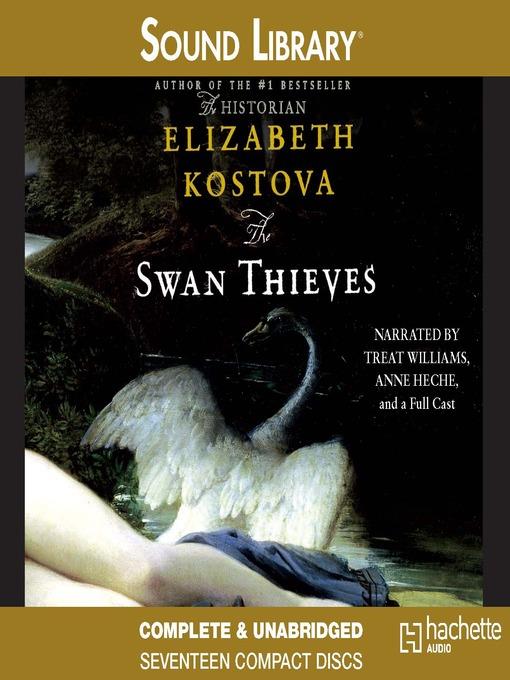
The Swan Thieves
فرمت کتاب
audiobook
تاریخ انتشار
2010
نویسنده
Various Narratorsناشر
Hachette Book Groupشابک
9781607883333
کتاب های مرتبط
- اطلاعات
- نقد و بررسی
- دیدگاه کاربران
نقد و بررسی

November 30, 2009
Reviewed by
Katharine Weber
Elizabeth Kostova made a dramatic debut in 2005 with her megabestselling The Historian
. The first debut novel to hit the New York Times
bestseller list at #1, The Historian
has been published in 44 languages, has more than 1.5 million copies in print, and there's a Sony film in the works. A hefty, quirky, historical vampire thriller that took 10 years to write and for which a reported $2 million advance was paid, The Historian
has managed through sheer bulk and majestic grandeur to confer upon itself the literary weight of Umberto Eco's The Name of the Rose
, even as it offers up some of the easy delights and generic writing skimps that put it on the Da Vinci Code
shelf.
The Swan Thieves
revisits certain themes and strategies of The Historian
, chief among them an academic hero who is drawn into a quest for knowledge about the central mystery, only to develop an obsession that becomes the driving force of the plot. Each chapter marks a point of view shift from the previous one, with the narrative shared among a variety of characters telling the story in a variety of ways. The events range from the present moment back to the 19th century of the painters Beatrice de Clerval and her uncle Olivier Vignot, whose intertwined lives, letters, and paintings are at the heart of the story.
This time out, Kostova's central character, Andrew Marlow, has a license to ask prying questions as he unravels the secrets and pursues the truth, because he is a psychiatrist. (Before Freud, genre quest novels depended on sleuths like Sherlock Holmes to play this role.) Even though Marlow comes across as a sensible, trained therapist, after only the briefest of encounters with his newly hospitalized patient, the renowned painter Robert Oliver, Marlow develops an obsessive desire to solve the mystery of why Oliver attempted to slash a painting in the National Gallery. Marlow is himself a painter, and the Oliver case has been given to him because of his knowledge of art. But Oliver is uncooperative and mute, though he conveniently gives Marlow permission to talk to anyone in his life before falling silent. Oliver's inexplicable behavior, which includes poring over a stolen cache of old letters written in French, triggers what I can only call a rampant countertransference response in Marlow, whose overwhelming obsession becomes a strange and frequently far-fetched journey of discovery as he persists to the point of trespass and invasion. Is this the crossing of the “ultimate border” promised by the ARC's jacket copy, the enactment of the fantasy of one's therapist developing an obsessive fascination that blots out all other reality?
Less urgent in its events than The Historian
, The Swan Thieves
makes clear that Kostova's abiding subject is obsession. Legions of fans of the first book have been waiting impatiently, or perhaps even obsessively, for this novel. The Swan Thieves
succeeds both in its echoes of The Historian
and as it maps new territory for this canny and successful writer.
Katharine Weber's fifth novel,
True Confections, will be published by Shaye Areheart Books in January.

























دیدگاه کاربران